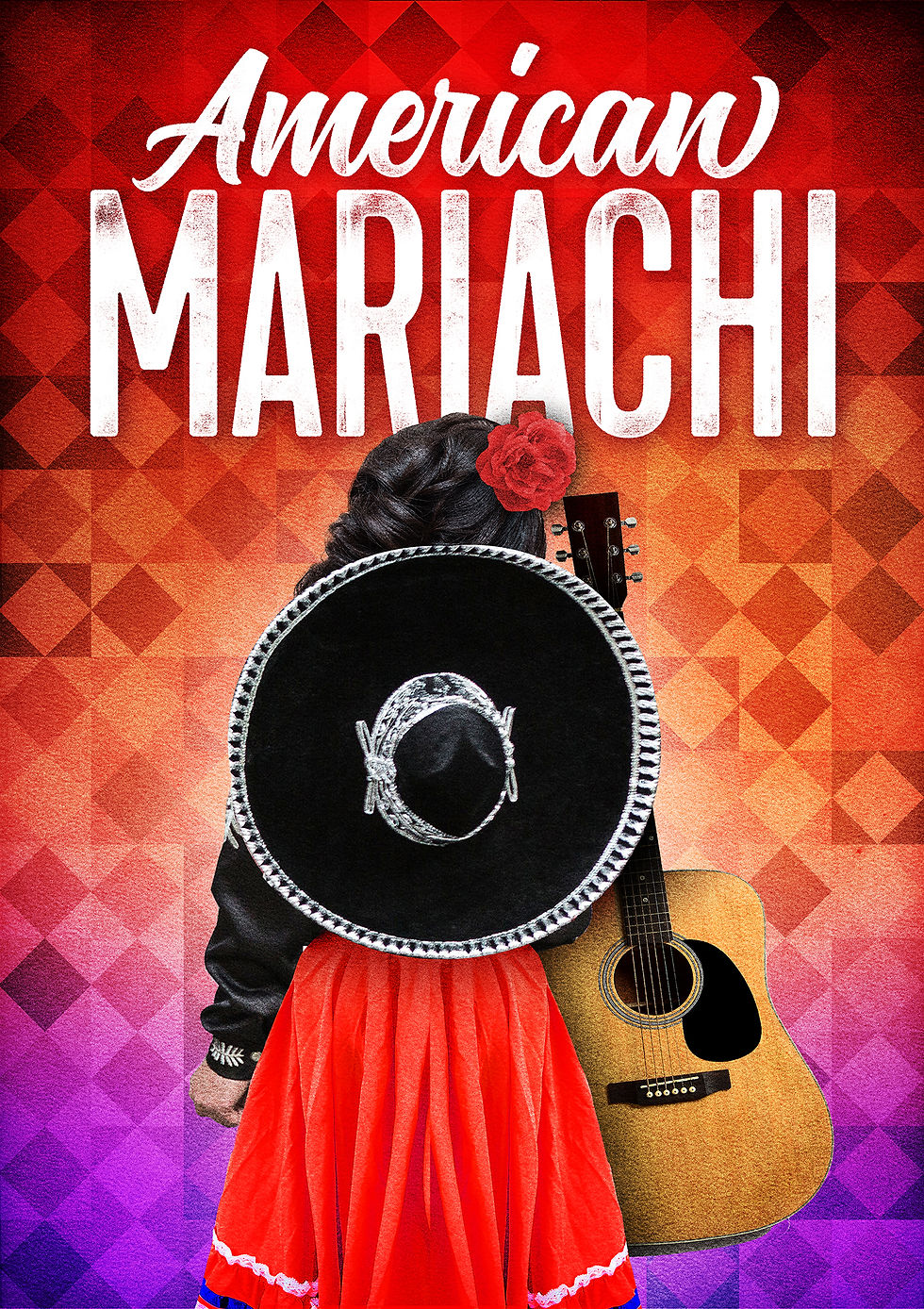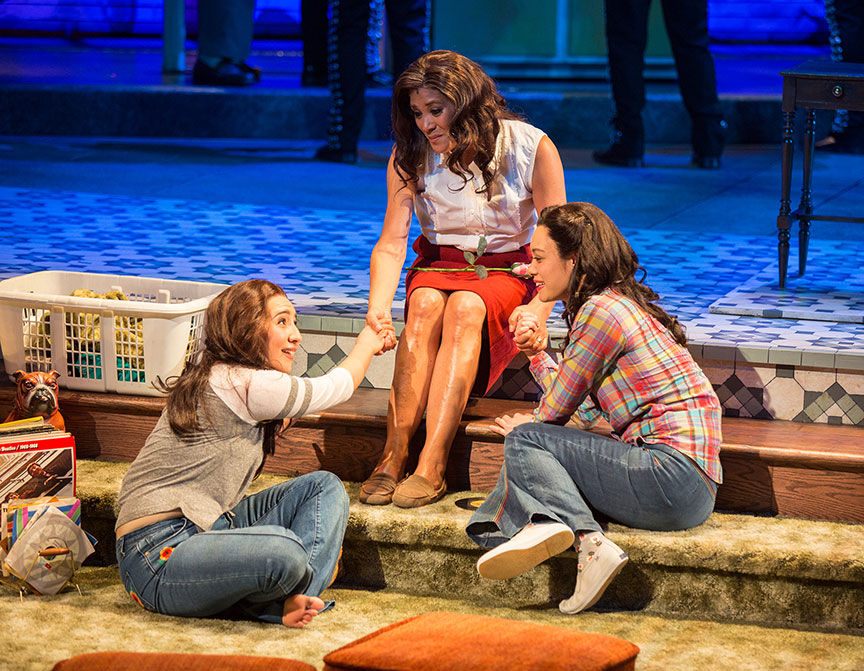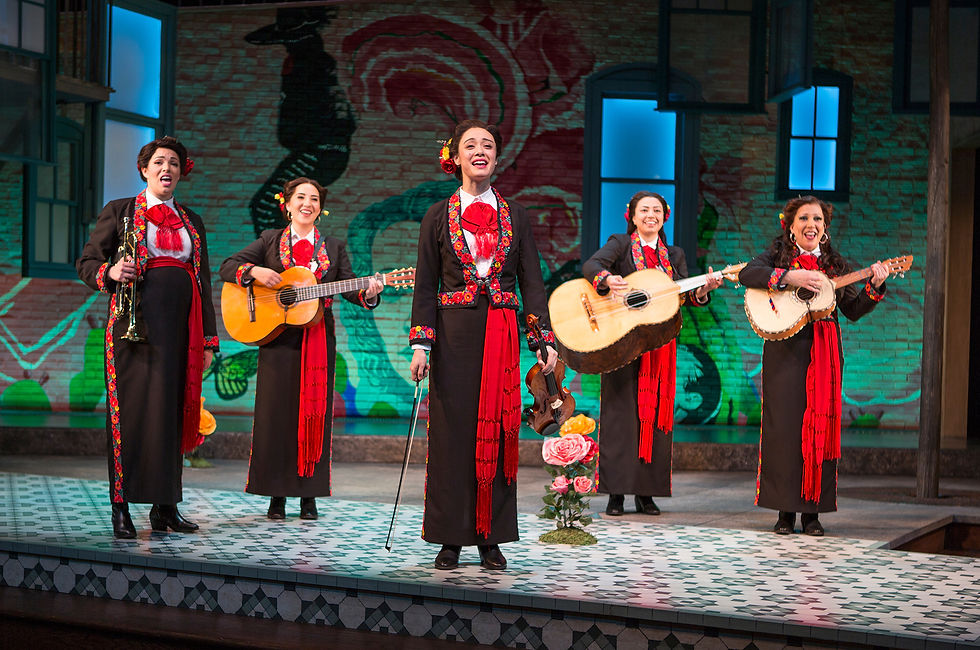American Mariachi at The Old Globe – “I have never seen myself represented so accurately on a stage.
- Justine Mamaradlo
- May 1, 2018
- 6 min read

Official Poster for American Mariachi
( On Wednesday, April 18, the DLA Drama Club had the opportunity to watch American Mariachi at the Old Globe. The following is praise for the production, summarizing the club’s overall feelings on this musical. )
American Mariachi is a new musical by Jose Cruz Gonzalez and is directed by James Vasquez. It made its world premiere at the Denver Center for the Performing Arts and had its final engagement at The Old Globe in San Diego.
Trailer for American Mariachi at The Old Globe
Set in the 1970s, a young woman named Lucha (Jennifer Paredes) desires to break away from her usual, monotonous routine. But between college and caring for her ailing, demented mother (Doreen Montalvo), how exactly would she be able to accomplish that? Surprisingly, she finds the answer in an old, mariachi record. One day while playing the record, Lucha’s mother takes notice of the music, and it briefly takes her out of her dementia. Noticing the joy the music brought her mother, Lucha knew exactly what to do – form her own mariachi band! But not just any mariachi – an all girl mariachi. Such a thing was unheard of at the time, and knowing how her father (Bobby Plascencia) favors tradition, she knew he would never approve of it. Though with the help of her spunky cousin, Boli (Heather Velasquez), Lucha is determined to put her plan into action.

Left to right: Heather Velasquez (Boli), Doreen Montalvo (Amalia) and Jennifer Paredes (Lucha) in American Mariachi
Within its story, American Mariachi covers an array of different subjects matters, from tradition to dementia to gender roles, even briefly touching the LGBTQ+ community. However, there is one overarching topic that spans the entire musical: Latin-American family life. American Mariachi portrays the marriage between Latino culture and American culture beautifully.
Unlike most other musicals, American Mariachi is performed through a blend of both Spanish and English. Though half of the show is spoken through a different language, none of the story is lost whatsoever. Non-Spanish speaking audience members can usually interpret what is being said for themselves by paying attention to context and observing the small gestures that the characters make. All in all, American Mariachi does an excellent job at representing those who are bilingual. Dialogue in this show often transitions from English to Spanish then back to English again and so forth. When writers attempt to create bilingual characters without knowledge of what it’s like to be bilingual, speech often sounds choppy and ingenuine. Nonetheless, the conversations between characters in American Mariachi manages to maintain fluidity while switching between tongues, a mark of the playwright’s credibility.

Left to right: Rodney Lizcano (Mino), Jennifer Paredes (Lucha), Natalie Camunas (Gabby), Crissy Guerrero (Soyla), Heather Velasquez (Boli) and Amanda Robles (Isabel) in American Mariachi
Aside from language, American Mariachi also depicts the merge of Latino and American lifestyles through various cultural references. Near the beginning of the show, the characters flashback to simpler times, to when Lucha and Boli were still kids and Amalia was still in good health. When Amalia brings up the topic of mariachi, young Lucha and Boli respond with complaints, saying how they prefer more modern forms of music such as The Bee Gees and and the Jackson Five. Amalia proceeds to emphasize how mariachi is still very important due to the major role it plays in love, family and tradition. Lucha puts it best when she asks, “Why can’t we have both Mexican and American?” This is a very sweet moment in the show due to how normal it is. Most mainstream musicals are often comprised of characters that stand a bit below the bar in terms of relatability. But many, especially those with immigrant parents, have most likely been in Lucha and Boli’s situation before. Being a first-generation American can lead a person to grow fond of things their immigrant parents might not be too familiar with. Again, kudos to the playwright and the actors for this portrayal.

Left to right: Tom Tinoco (Violín), Fernando Guadalupe Zarate Hernandez (Trumpet), Doreen Montalvo (Amalia), Ruben Marin (Guitarron) and Erick Jimenez (Vihuela) in American Mariachi
Lastly, the best, most important thing American Mariachi has brought to the world of theatre was it’s amazing representation. Some may have heard of how Hollywood is “whitewashed,” referring to how most TV shows and movies contain casts of mostly Caucasian individuals and lack entertainment where people of color play the leads. For the longest time, this has also applied to musical theater. Though the public has been gifted with shows such as In the Heights, On Your Feet!, and Hamilton, that’s still only three musicals amongst the hundreds of others that are not exactly as diverse. However, more diverse theatrical productions are beginning to become more common, and American Mariachi is helping to add to that mix. When shows like this do pop up, it means the world to those who wish to see characters like themselves in entertainment. Three DLA Drama members were willing to share how experiencing American Mariachi has affected them. Here are there stories.
Brenda Nieto, 10th Grade
“When I moved to Escondido, I decided that assimilating was the best thing I could do. I adopted as many American traits as I could. I began to dance ballet folklorico but I kept that a secret. It wasn't until very recently that I realised being Latina was a big part of my identity that I couldn't just keep separate from the rest of my life. This play is about a Mexican-American family that goes through many of the same issues mine has. The main character chooses to take over the tradition of playing mariachi just like I have chosen to take on the tradition of dancing ballet folklorico. I have never seen myself represented so accurately on a stage unless I'm performing with other dance/mariachi groups. Representation is so important, especially in our current society.”
Andrea Luna, 10th Grade
“As a person that deeply loves the theatre and everything that comes with it, I found this to be an incredible experience. I loved everything that came with it, including the actors emotions to the amazing stage was able to capture different feelings within the play. The play’s overall feeling of hope and love made me realize that being a Latino is something to be proud of. Having a Latino background isn’t easy around these times with people having different feelings about one’s roots. However, the play’s use of ethnicity to express a different image of people of color and gender expressed a deeper image of what a true Latino is and how culture within these people, is something beautiful others should learn from. The show was a perfect balance of sadness and hope that sprout a change that speaks dearly to me.”
Savannah Ruiz, 11th Grade
“As a Latina, it obviously spoke to me on a deeper level. They really did capture what it's like to live in a Latino household. It's so many emotions. It's crazy, it's funny, it's happy, sad and all of those can happen in one day and you never know what you're gonna get. But also it showed that at the end of the day, family is gonna have your back no matter what. Whether that family be by blood or by choice, it's something everyone should have. It also brought back fond memories that I have with people like my grandmother who loves mariachi and who has listened to it her whole life while living in Mexico. I would remember times when she would put on the radio and she would tell me all about the artist, what they're like and who her favorite artist was, or what was her favorite song was. And then she would sing it to me and would try to get me to sing along. Personally for me it's hard because I'm not your typical Mexican who can speak fluently in Spanish and who can read and write in it, because unfortunately I was just wasn’t taught at a young age. And to see this same struggle in the play where the main actor had trouble with her life and traditional life of her parents hit close to home with me, because its not the same and it's hard to work out the differences. After the show though, I felt better about myself and I felt confident. It showed me a sign and now it's a little bit easier to accept myself.”

Left to right: Amanda Robles (Isabel), Heather Velasquez (Boli), Jennifer Paredes (Lucha), Natalie Camunas (Gabby) and Crissy Guerrero in American Mariachi
American Mariachi made its final performance at The Old Globe on April 29, 2018.







Comments